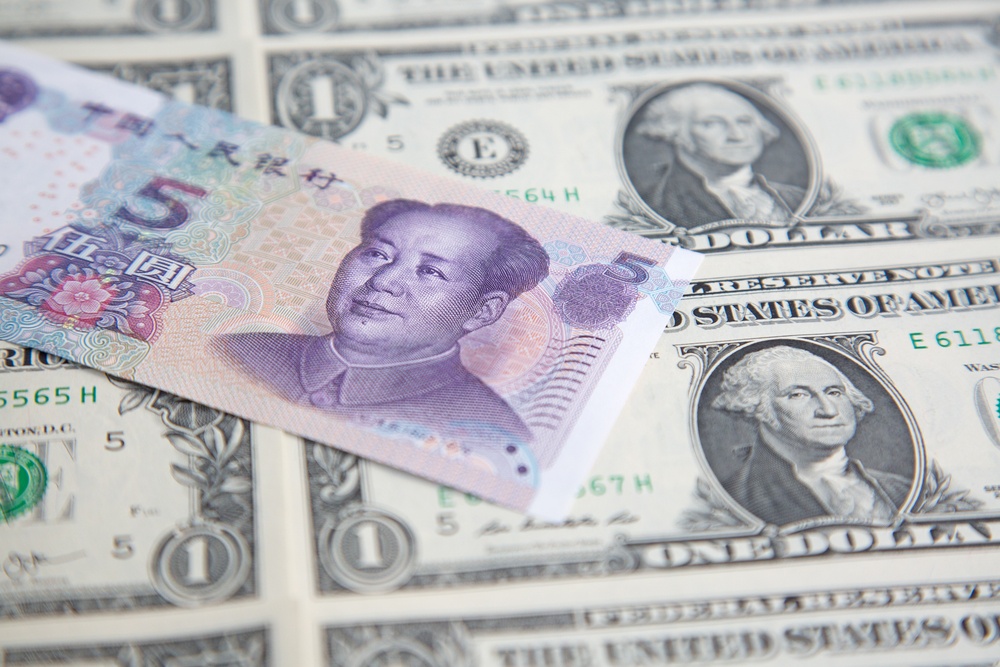The US-China trade war has gone on for more than a year now. The two warring countries have been using tariffs as weapons against each other. As they raise tariffs, they have created a huge trade barrier that has not only dragged their economies but also other countries’.
Canada is among those seriously affected by the trade war, given that both the US and China are its top trading partners. A 2018 report showed that Canada exported 75.1% of its goods to the US and 4.7% to China.
Canada’s industrial exports to the US include crude oil and petroleum, natural gas, gold, potassium chloride, and wood amongst others.
Since the US-China trade war broke, Canada’s industrial commodities have been performing unpredictably. Consequently, the TSX has become erratic, too. There have been ups and downs, abrupt rising and falling that it seems like a year-long rollercoaster ride.
Canadian stocks rise and fall
Early in September, reports said negotiators were once again keen to resume high-level talks. The news sent the markets roaring with high optimism with stocks and indexes soaring.
The discussion will be held in October in Washington. This was confirmed by Lui He, a top Chinese economic official and Beijing’s top trade negotiator. He said the meeting was arranged via a cordial call among negotiators. Attendees will be Robert E. Lighthizer, U.S. Trade Representative, Steven Mnuchin, the U.S treasury secretary.
Canada’s main stock index futures jumped over the news. The S&P/TSX index climbed 0.4%, hours after the announcements on Sept. 5. The Toronto Stock Exchange S&P/TSX composite index closed 49.61 points or 0.30% at 16,448.84.
Energy and materials sectors suffer
The uptrend was welcoming news coming from a tepid month in Canadian markets.
In July, Canada’s energy and materials sectors had been the most affected by the trade war, out of 11 sectors. The energy sector dropped by 0.6% in May after the US, following their conflict with Iran, decided to block oil imports from the Middle East.
The material sector, at the same time, dropped by 0.2%. Top-performing mining companies in the TSX such as Lundin Mining Corp and Sierra Wireless Inc. saw the biggest blow on their sales. Their stocks fell by 5.9% and 5.4% respectively.
Gold dropped $3.40 to $1,412 an ounce. Centerra Gold Inc. became the worst-performing gold company, as the price of its gold dropped from a six-year high.
Tech and oil are not exempt
The technology sector index fell by 2.66% in Toronto following a 4.3% drop by Shopify Inc., an Ottawa based e-commerce company.
In addition, the oil and gas producing companies such as Crescent Point Energy Corp. and Canadian Natural Resources recorded a huge drop in their shares: 3.8% and 3.6%, respectively.
In the stock markets, both the Canadian and the US economies appear volatile in July. Each recorded a good performance in one area and poor performance in another. For instance, the latest data show that S&P/TSX index fell by 4.49 points to 16,307.73, while the loonie rose to a four-month high.
Dow Jones also on highs and lows
On the other hand, the New York-based Dow Jones composite fell by 10.24 points at 26,526.58, while the S&P 500 index was up by 11.14 points at 2,924.92 offsetting the decline.
There was a complete turnaround, however, early in September. Dow rallied as much as 379 points or 1.4% at markets closing. This was due to the confirmed resumption of trade-talks between the US and China. This had been the best level for Dow since July 31 and the best one-day percentage gain since Aug. 13.

Resumed talks, false hopes
The optimism in September was similar to how markets reacted positively ahead of the G-20 summit where US President Donald Trump and President Xi Jinping talked at the sidelines. Markets then were disappointed when there had been no significant developments and various tariffs had in pact followed afterward.
Before the G20 Summit, Kash Pashootan of First Avenue Investment Counsel Inc. said in an interview that she was hoping the summit would yield a solution for the trade war.
At that time, the US was willing to suspend an additional $300-billion tariff on Chinese goods. To top that, both the US and China agreed to end their tariff war and work on restoring their financial market as trade negotiations continue.
The hope that the markets held prior to the G-20 2019 was immediately crushed after. Instead, the tariffs got worse and the trade conflict continued.
Elsewhere, the US-China trade war continues to bring huge economic damage. According to the World Trade Organization, the war led to 20 new restrictions in the world’s most powerful economies between October 2018 and May 2019. This blocked the generation of $335.9 billion which could have been used in building the economies.
Canada can attest to the economic damages of the trade war. For now, the country is left with nothing much to do. It hangs by a thread each time both parties make empty promises with their renewed talks that have really gotten nowhere.
(Featured image by DepositPhotos)

